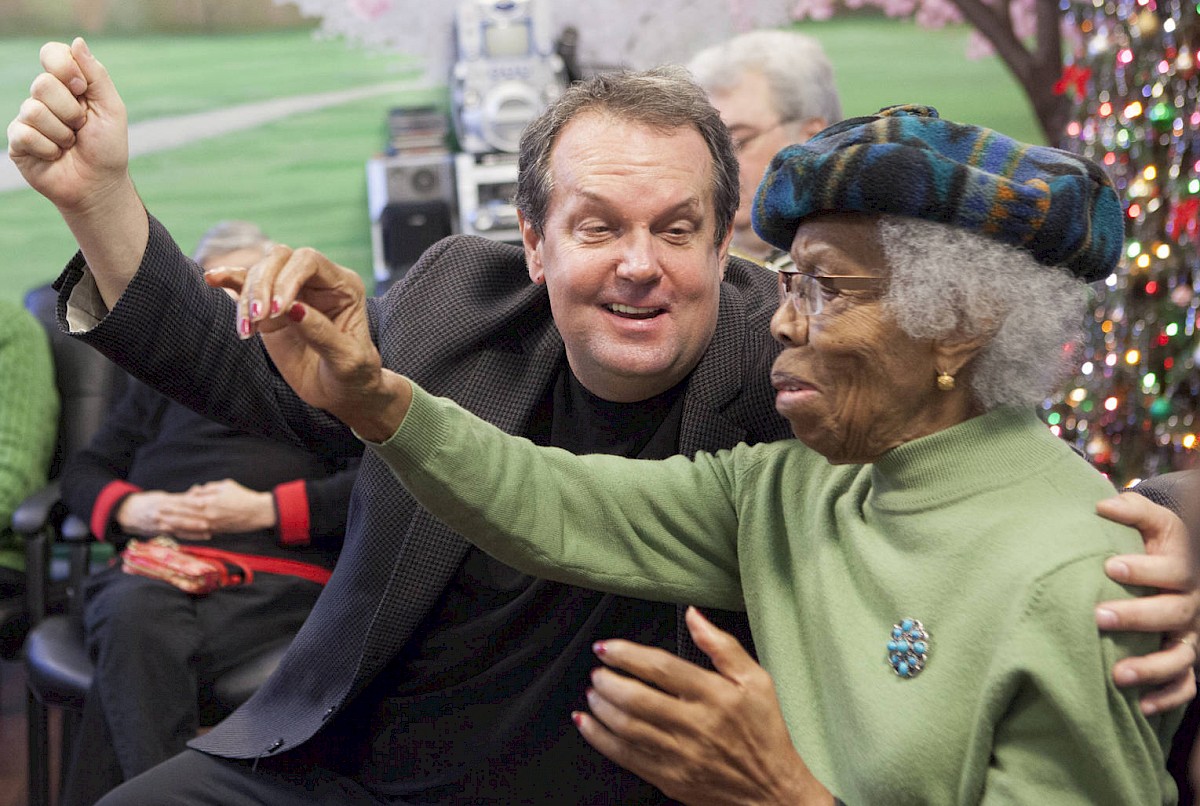Gary Glazner

The mission of the Alzheimer's Poetry Project (APP) is to facilitate the creativity of people living with Alzheimer's disease and related dementia. APP uses classic, well-loved poems to connect with people living with dementia. They engage them in call-and-response performance and the poems serve as inspiration for the creation of their own original poetry. APP does not set boundaries in their beliefs in what is possible for people with memory impairment to create. By saying to people with dementia, “We value you and your creativity,” APP says, “We value all members of our community.”
APP engages the participants in the recitation of classic poems and the creation of new original poems. To engage the participants in performance, the session leader uses a call-and-response technique, reciting a line from a well-known poem and coaching the group to echo the line. Using the classic poem as inspiration and coupling the performance technique with an open-ended question enables a group poem to be composed based on the participants’ responses. App has had success in using Wordsworth’s poem, “Daffodils” as a model and asking, “What does spring smell like? Taste like? Sound like? Feel like? Look like?” This leads to a poem based on the participants’ reflections on spring. The hour-long sessions divide into 30 minutes of performing poems and 30 minutes of creating a new poem. Each session ends with the performance of the new work. APP’s programming is unique in developing and responding to the need for creativity of people in all stages of dementia. They often create medleys combining poems and songs. APP also uses movement and dance combined with poetry, as well. A powerful technique to increase engagement is to gently move the person’s hand to the rhythm of the recitation.
APP’s The Memory Arts Café provides a safe and welcoming environment where artists of all genres will collaborate to create and perform work with people living with Alzheimer’s disease and related dementias and their family members. To enhance their cultural experience, each event provides an opportunity for the participants to socialize over refreshments with the artists. The target audience is people in all stages of Alzheimer's disease and related dementia. 60% to 70% of the people served are women, ranging in age from 60 to 105. Programming impacts the community by helping people living with dementia to remain creative and engaged and better to express themselves.